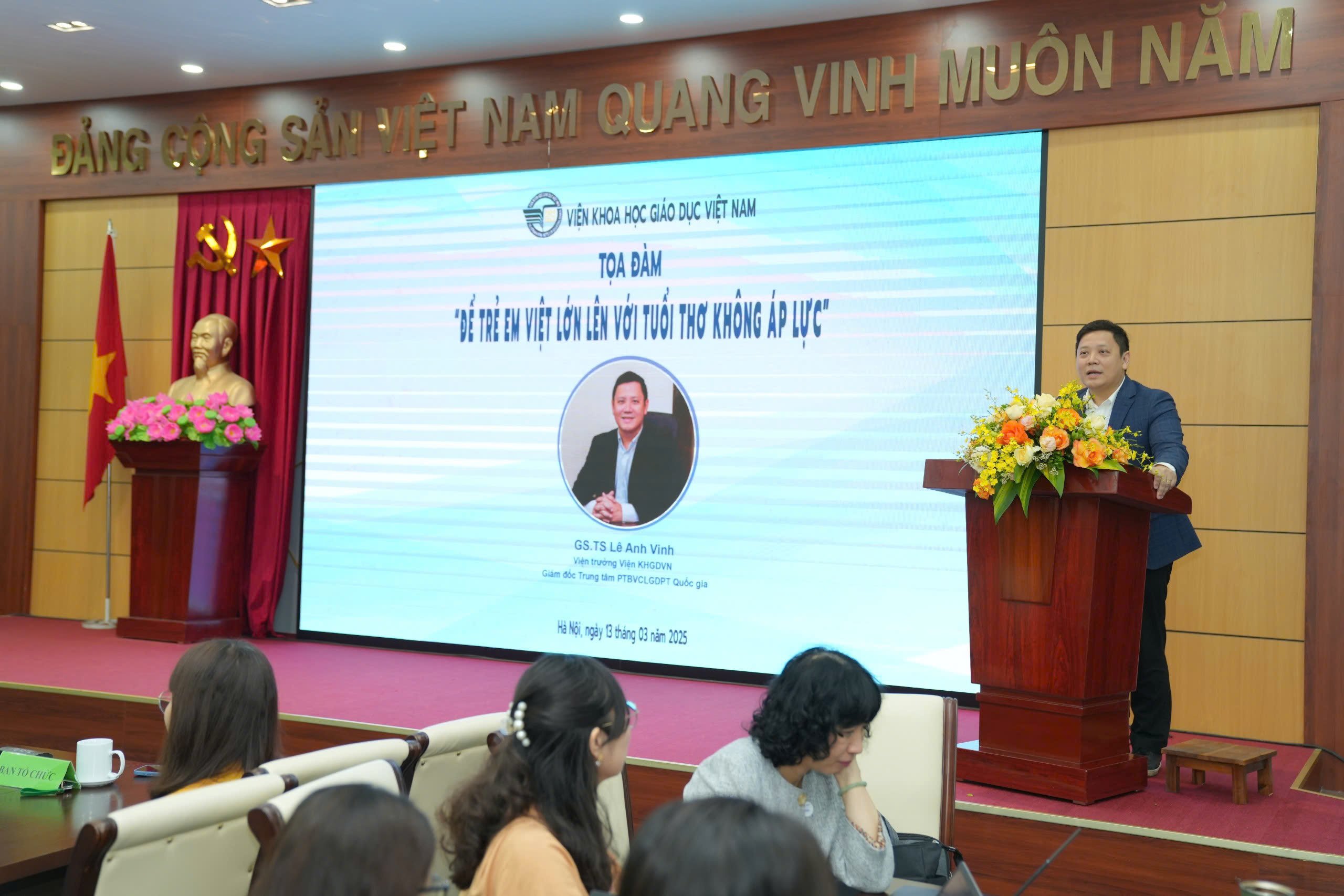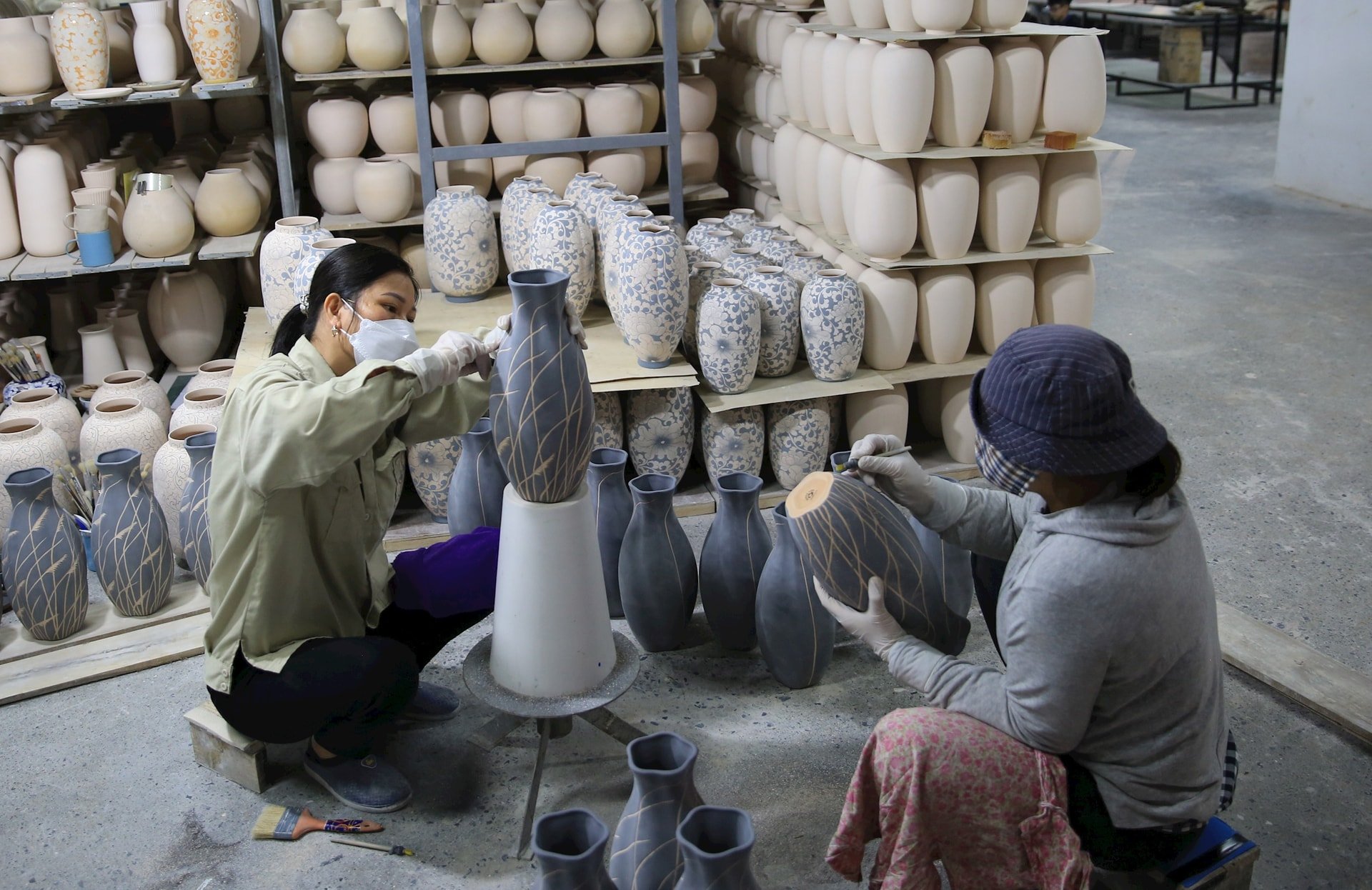The sedentary lifestyle deeply affects the psychology and self-development of young people if not identified and adjusted promptly.
 |
| MSc. Dinh Van Mai believes that the lifestyle of living on canvas has a significant impact on the lives of young people. (Photo: NVCC) |
Tarpaulin - popular trend among young people
“Canvas lifestyle” is a keyword that refers to a formal, ostentatious lifestyle by creating a flashy appearance, impressing others by showing off material things, achievements, or relationships, but in reality not achieving those real values.
The four characteristics of a populist lifestyle include materialism, virtual living on social media, chasing appearances, and lack of depth. This lifestyle seems to be becoming a popular trend among young people. This comes from many different causes.
Firstly , the impact of social networks, many young people feel the need to appear with a perfect image and a glamorous lifestyle to attract.
Second , peer pressure and pressure from other people's success lead young people to compare themselves with friends or famous people, thereby creating pressure to be better than others.
Third , the psychology of young people wanting to assert themselves to be respected, recognized or admired by others, not wanting to be left behind. Fourth , the lack of orientation towards true life values leads to young people focusing too much on appearance. The desire for quick success makes many young people confuse personal image with true value.
There are many factors in today's society that affect the lifestyle of young people. That is, social networks contribute to building a virtual culture of young people with photo and video editing tools to paint themselves or are filled with bragging images, showing off a luxurious and lavish lifestyle, leading to pressure on young people.
Second , unrealistic beauty standards make young people invest in their appearance to gain recognition. Third , the rise of consumerism and material culture with branded goods or expensive technological devices being owned by young people to show off regardless of overspending or using financial instruments (installments, credit cards).
Fourth , social pressure from success is painted with luxurious images, houses, cars, clothes, making young people feel the need to "act" to gain recognition. Fifth , the impact from the media and celebrities with luxurious lifestyles makes young people consider it a standard to achieve. Sixth , pressure from families who expect their children to be successful, rich, and equal to their peers but lack direction leads to young people getting lost on the journey of self-affirmation.
In fact, it can be said that the canvas lifestyle has a profound impact on the psychology and self-development of young people if not recognized and adjusted promptly. Self-esteem will decrease when facing one's true self and the question "am I good enough?"
Instead of investing in self-development and improving their competitiveness, they focus on “counting” each like, comment, view or compliment from others. “Fake” confidence is formed under a false cover. This makes them afraid of being “exposed”. In the long run, it leads to stress, anxiety, fear of being judged or not being classy enough.
When they realize that this lifestyle does not bring true happiness, young people may feel empty, disoriented or depressed. Some people even feel isolated because their relationships are based on appearances and lack sincerity.
 |
| Instead of investing in self-development and improving their competitiveness, they focus on “counting” each like, comment, view or compliment from others. (Source: Internet) |
To help young people find balance in expressing themselves
The question is, how can young people become more aware of the harmful effects of a populist lifestyle and find balance in their self-expression? In my opinion, stakeholders need to have diverse strategies to reach young people, help them raise awareness of populist lifestyles and build a journey of personal development in the digital age.
Parents and teachers are always role models for a sincere lifestyle and not chasing after formalities. The recognition of the real efforts of young people in the family environment should be encouraged and implemented continuously and regularly. Clear discussions and orientation for the development of young people's abilities are necessary and should be of interest to parents.
Life skills and value enhancement training sessions can be integrated into the school curriculum. Case studies on unrealistic lifestyles and their effects should be discussed and debated in each class.
This helps young people become aware of the negative side of a fake lifestyle. They can join clubs and groups based on their interests to improve their skills and develop healthy relationships. The community together creates campaigns such as "No Social Media Day" or "30-day Real Life Challenge" to limit the use of social media and promote real living and real connections.
The media really plays a big role in shaping the lifestyle of young people and how the media can influence in building a positive, healthy lifestyle for young people is important. Meanwhile, social networks have a strong and profound impact on the thinking, behavior and lifestyle of young people.
The media is the main source of information that helps young people access knowledge, life skills, and cultural and ethical values. Many media campaigns with positive messages such as environmental protection, healthy living, anti-school violence, anti-drugs, etc. have helped raise public awareness.
Real-life success stories, examples of overcoming difficulties, and reality shows that develop knowledge and practice skills can motivate young people. However, untrue images and videos are spread rapidly and without censorship, affecting young people. Advertising is rampant on media platforms, promoting a consumerist lifestyle, causing young people to be caught up in a spiral of shopping to prove themselves. Social networks often prioritize flashy, attention-grabbing content, leading to the shaping of an ostentatious lifestyle or material values.
Media can become a powerful tool to promote positive lifestyles among young people through meaningful campaigns, sharing images of successful people who have risen through their efforts. Media can cooperate with celebrities who have influence on young people to spread positive messages, share real experiences instead of showing off; support simple lifestyles, focus on sustainable values instead of following consumer trends.
Tech companies need to commit to developing algorithms that recommend positive, educational content, rather than content that is only clickbait and sensational. Media platforms should censor content that is inappropriate, puts pressure on young people, or promotes wrong lifestyles. Young people in particular need to speak up against misinformation.
Family and school play an important role in shaping the personality, values and lifestyle of the young generation. Parents and teachers should set an example for young people to follow through consistent and sincere thinking, words and actions.
Parents and teachers need to become companions so that young people feel safe to share their thoughts and feelings without fear of being judged; encourage children to develop themselves based on their own interests and personalities. At the same time, guide children to recognize the difference between real images and edited images, advertised on social networks.
Join your child in outdoor activities, clubs, or community projects to reduce their dependence on the virtual world. Proper care and support will help children build a natural, authentic lifestyle and have a solid foundation to face all challenges in life.
Source

























































































Comment (0)